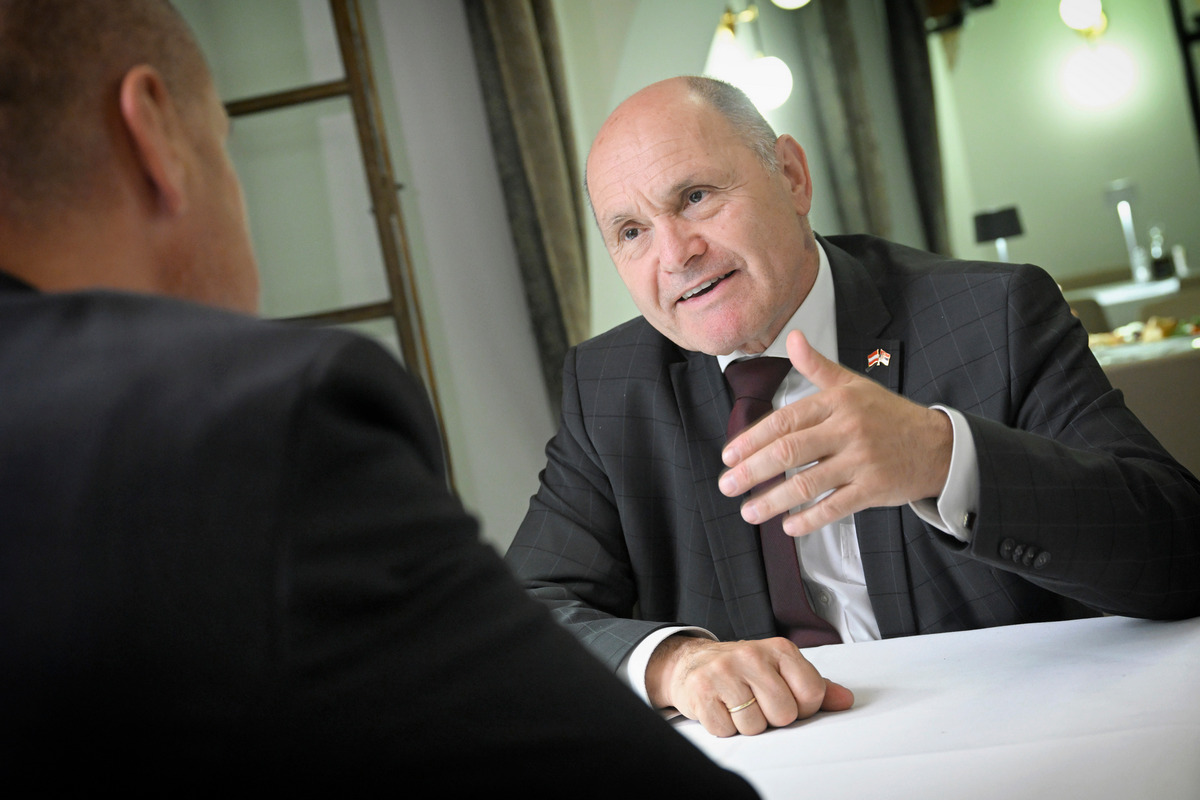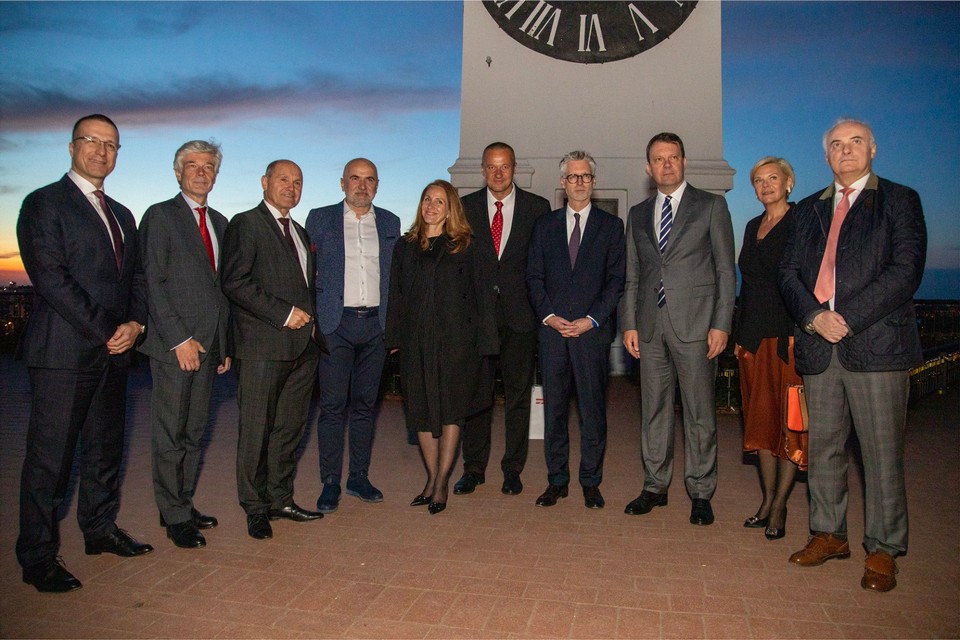Nostalgia and paying homage to the past are paramount and beneficial, but what is even more significant is our united outlook on the future

In the era of swift changes, Austria’s President of the Parliament, Mr. Wolfgang Sobotka, champions a united Europe, underscoring the significance of integrating Serbia into the European Union. In the ambitious vision for the future, Sobotka draws attention to the vital role of Austria as Serbia’s second-largest investor, contributing to the job market and fostering economic growth. The necessity of Serbia’s alignment with the EU’s foreign policy, particularly regarding Russia, is emphasised, alongside the need for the further rule of law reforms. His message is one of shared responsibility, mutual growth, and above all, a harmonious future for Europe.
The ties between Austria and Serbia are steep in abundant history: there were glorious times and times with plenty of adversity. How do you see the future of those relations if we consider the prevalence of the Austrian economy in Serbia just as the large proportion of the Serbian population who live and work in Austria?
Europe is incomplete without the Western Balkans. Our goal must be a strong and united Europe, of which Serbia is also a member and which defends the values of the European Union together. I am pleased that Austrian companies are so prevalent in Serbia – therefore, I look into the bright future with certainty and confidence. Austria is the second largest investor in Serbia and has created around 22,000 jobs with over 400 companies.
Serbia officially wants to become a member of the EU, but obstacles constantly appear along the way, from those that we set for ourselves (insufficiently dynamic reforms) to those that the EU puts before us (normalisation of relations with Kosovo and political stance to the war in Ukraine). In your opinion, what are the main obstacles for Serbia on that path, and how to overcome them?
Progress in Serbia’s accession negotiations depends on the rule of law reforms and the normalisation of its relations with Kosovo. It must be clear to both sides that no alternatives are possible, so they must take implementation seriously. Another critical step in the accession process is the alignment with the EU’s foreign policy, notably the EU’s position on Russia. As the largest country in the Western Balkans, Serbia bears a particular responsibility in the region. No country can remain neutral, given that Russian militancy disrupts the most basic tenets of international law. Austria commends Serbia for supporting the international community’s condemnation of Russia’s war of aggression in the UN General Assembly. It is inconceivable to remain on the sidelines in such essential matters.
As the largest country in the Western Balkans, Serbia bears a particular responsibility in the region
Could you select and state what left the strongest impression on you during your visit to Belgrade and Novi Sad?
It is undisputed that the pro-European attitude has solidified at the political level in recent years. Now we must succeed in bringing Europe into the hearts of the Serbian population. Incidentally, the construction activity impressed me just as much as the foreign language skills of the youth.
As a former part of Austria-Hungary, Vojvodina inherits many assets from the country it belonged to 120 years ago – from the diversity of national communities to architecture and culinary specificities. On the other hand, it seems that Hungary is much more present than Austria in terms of “soft power” in the states and regions that were once part of the common state. How do you see that in Vienna, unlike Budapest, there is no such kind of “nostalgia” concerning the former provinces?
Nostalgia and paying homage to the past are paramount and beneficial, but what is even more significant is our united outlook on the future. And here, Vojvodina and Novi Sad offer excellent opportunities to continue to foster the relations between our two countries. My visit to the BioSense Institute and the famous Matica Srpska Gallery in Novi Sad gave me a whole new perspective on an up-and-coming region of Serbia regarding science and culture. Representatives of Austrian provinces, for example, from Lower Austria or Styria, regularly come to Vojvodina to plan new opportunities for economic cooperation or cultural exchange. The European cultural city of Novi Sad has made a significant contribution here.
Of course, it would be nice if certain directives were less rigid and international relations were in absolute harmony, but unfortunately, politics is not a musical request programme
A performance of “Eine Kleine Nachtmusik”, played by the Capella Istropolitana and conducted by you, was used in Josef Hader’s 2017 film “Wild Mouse”. How much does having a classical music education and background help you in your work in the Parliament?
As the President of the Parliament, I don’t conduct or direct. Essentially, all the regulations are in the Rules of Procedure, and the scope for a President is very clearly defined. Of course, it would be nice if certain directives were less rigid and international relations were in absolute harmony, but unfortunately, politics is not a musical request programme. Working with people is perhaps the common denominator. Besides that, I don’t see any analogies. Artistic work is something completely different – it’s about making a score sound harmonious.
